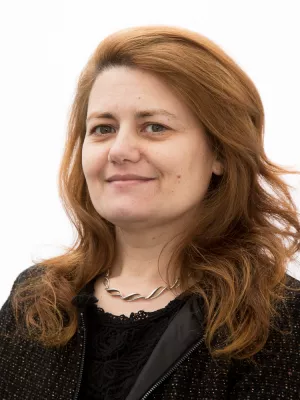
Ana Nordberg
Senior lecturer

Legal method and lnterpretation in International IP law : Pluralism or Systemic Coherence
Author
Editor
- Susy Frankel
Summary, in English
While pluralism and minimum harmonisation may have advantages concerning substantive requirements for IP protection there is an argument to be made in favour of establishing further harmonisation concerning rules and principles for legal interpretation of international or regional IP treaties, conventions and other legal instruments. Increasing autonomy of IP Law as a legal discipline and the development of specialisation whiting different IP areas have resulted in different layers of sources of law, comprising specific scopes, validity and enforceability mechanisms. Specialised international, regional and national institutions are creating a body of ‘case-law’ following a specific set of interpretative logic, rules, principles or praxis.This paper reflects on policy options between pluralism and harmonization in two separate levels: (1) the desirability of establishing, or not further harmonization of interpretative rules, criteria and praxis in IP law; (2) whether internal harmonization or systemic coherence between different areas of law and regulation affecting the same object or legal fact is a desirable interpretative objective. The point of departure for the analysis will be emerging technologies, such as for example synthetic biology applications, 3D printing, and gene editing. These are technologies which present a multitude of horizontal challenges crossing different legal disciplines and areas of IP law. These are also technologies which raise interesting social and ethical questions and promise an overlapping wider impact in intellectual property rights. This confluence of circumstances and characteristics strengthen the possibility of actual emergence of a pluralism of legal responses, while making it crucial to debate arguments for using either ‘functional pluralism’ or ‘systemic coherence’ as a policy approach.
Department/s
- Human Rights Law
- Health Law
- Lund University Centre for Business Law (Swedish abbr: ACLU)
- Department of Law
Publishing year
2019-07-04
Language
English
Pages
96-96
Publication/Series
Is Intellectual Property Pluralism Functional?
Full text
- Available as PDF - 771 kB
- Download statistics
Document type
Book chapter
Publisher
Edward Elgar Publishing
Topic
- Law
Keywords
- Law
- International IP Law
- Emerging technologies
- Legal interpretation
- Legal reasoning
- Legal coherence
- Legal method
- Rättsvetenskap
- Immaterialrätt
Status
Published
Research group
- Human Rights Law
- Health Law
- Lund University Centre for Business Law (Swedish abbr: ACLU)
ISBN/ISSN/Other
- ISBN: 978178897798 2